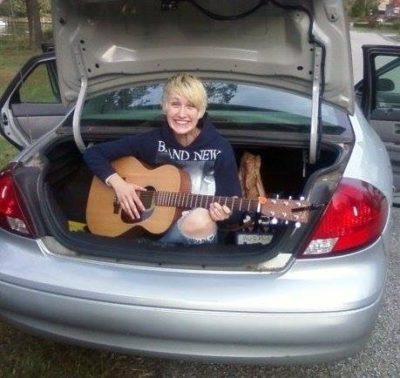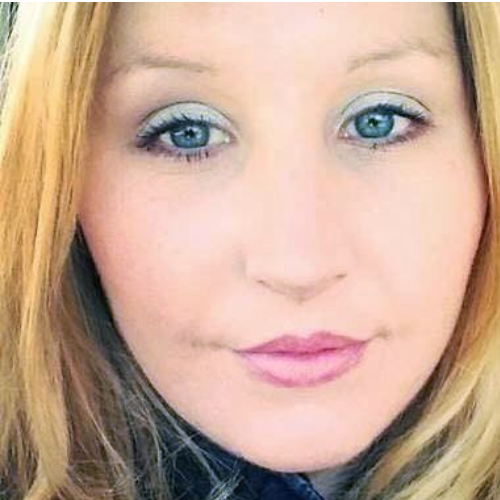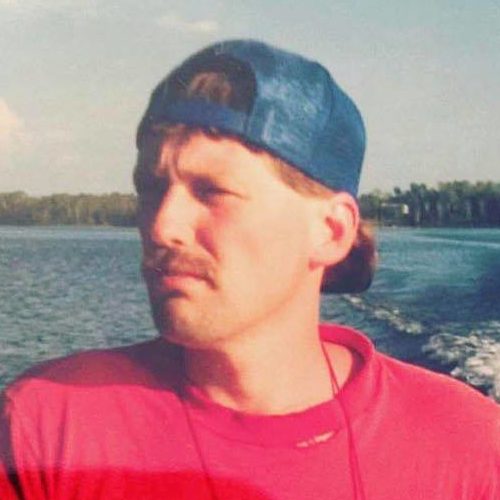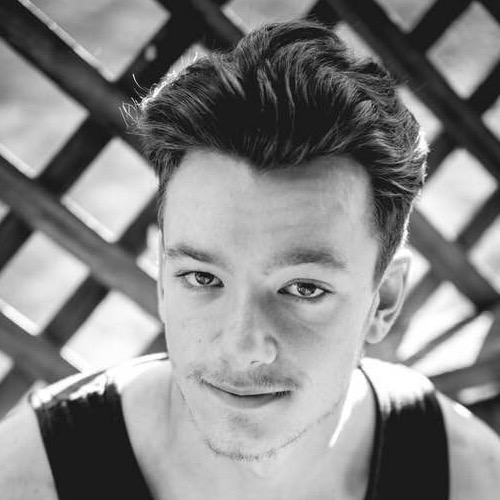Submitted by her mother, Carmen Skarlupka
100% present

Sam was a warm, tenderhearted, gentle, loving young woman. She was 100 percent present, and she met you where you were. She enjoyed the outdoors, exploring and kayaking. We lived on Chesapeake Bay, so being out on the water was a typical occurrence. Sam won her first kayak race at 9 years old.
She was an artist. She painted, created with mixed media. She never got rid of anything, so she had plenty to incorporate into her artwork. When we were with the coroner and were asked what Sam’s occupation was, between the four of us, two said artist and two said hoarder. So that’s what’s on her death certificate: artist and hoarder.
A memory that captures Sam
Sam and I had just gone grocery shopping. While leaving the parking lot, we encountered a man holding a sign saying he was out of work and had a young family. Wordlessly, we looked at each other. Sam opened the car door and gave the man all of our groceries, encouraging him that everything would be all right.
She was a “character”

For Sam, every birthday was a character-themed birthday. She still dressed up for every Halloween even as an adult, and on any given day she would dress up and go out in public. She marched to nobody else’s drum.
How Sam became involved with drugs
Sam had a lot of trauma in her short life. She was autistic and bipolar, had obsessive compulsive disorder and PTSD. She suffered sexual abuse from a daycare provider at 7; she was bullied for being a lesbian and dressing more masculinely; and, starting at 12, she had terrible dysmenorrhea and endometriosis. Whenever she got her period, it was as if her body was attacking her. That’s when she was put on opiates for the first time, at 12 years old. They wouldn’t do anything surgically because she was so young. So she became addicted to opiates. I realize now that the sickness, crankiness and general ill feeling in between her periods was probably withdrawal.
In recovery and then an accident
In May of 2016, Sam had been in recovery for nine months when she was hit by a car as a pedestrian. When I got to the shock trauma unit, I heard her tell the doctors not to give her any opiates because she was in recovery. She didn’t know that she had already been hooked up to an IV with them when she was unconscious. The doctor said that first they had to keep her alive, then they would deal with the substance-use disorder.
The accident caused a traumatic brain injury, and from then on Sam needed near-constant care. Her short-term memory was gone; she shook like she had Parkinson’s disease. I was her full-time caregiver.
It was two years before she was in a situation where she could have the facial surgery she needed. During that time, they were tapering her off opiates and onto Suboxone. This was when the opiate crisis was really coming into public knowledge, and our county suddenly took away a physician’s ability to prescribe Suboxone, as well as closed the clinics. Sam had an appointment to have her prescription renewed on a Monday, when her physician was arrested for prescribing opiates. We had three days’ worth left. They were shutting down clinics all over, so we couldn’t get an appointment until the next Monday. She started to go into withdrawal on Wednesday. She overdosed on fentanyl as a Jane Doe in a public bathroom before she could make it to that appointment.
She was so giving
After Sam’s accident, I was running for state delegate. I had been advocating for substance-use-disorder and harm-reduction legislation for years. When I decided to run, I talked to Sam and let her know that it was up to her — that many of the details of her life and struggles would probably come out. She told me to go for it, saying, “We all need you.” She was a compassionate soul.
What Sam would want for others
Sam would want you to live your best life. To never give up. To keep trying your best. To love authentically and unconditionally.
If I could say one thing to her now, it would be
I love you, my precious daughter. I will continue to advocate for compassionate care, treatment and harm reduction for everyone struggling with an addiction.





Leave A Comment